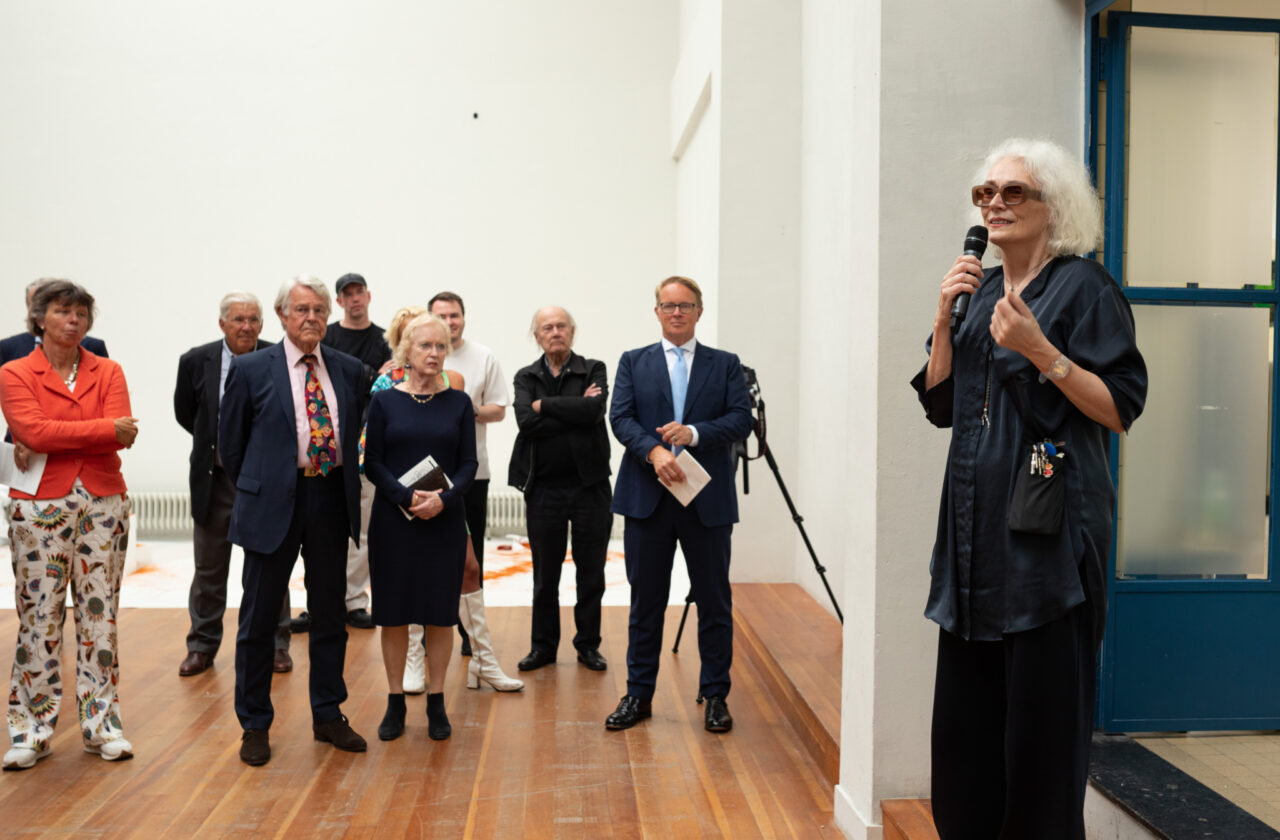In the galleries of the KABK, first-year
Students are busily walking back and forth and when I talk to one of them during the construction, I notice that this is not the right moment. One of the students, Zeynep Oral, is standing on a ladder and pasting letters on the wall. Together it makes the sentence 'Are your thoughts your own, or are they fabricated'. When she asks if the letter S hangs straight, I agree. The project will be screened on the TVs below the letters. Everything must be finished before the members of the Haagsche Schouw visit the exhibition. The Haagsche Schouw is a network organisation of top Dutch professionals from all sorts of sectors.

Questioning the obvious
The three first year I/M/D students Zeynep Oral, Ekin Asci and Corina Vettore Gimenez worked together with Pauline Meurs, professor of Governance of Health Care at Erasmus University and Kim Putters, professor of Policy and Management of Care, also at Erasmus University. In 'real life' they would not have met each other and that is what made this project so special.
"The students and me met a few times. It was like different worlds spoke to each other. The students questioned the obvious which I liked. I noticed that, for the students, it was really about the project; we were just a side issue. I think I have learned as much as the students did from this project”, Pauline says. “I am looking forward to the outcome of the project, because I have no idea what that could be.”
‘High up’
That was exactly what made this project fun for the students as well. Corina: "At the end we are social beings, and we can learn so much from each other. The more diverse people you meet, the more you enrich yourself. It was interesting to mingle with the members of the Haagsche Schouw, to understand their personalities and observe their attitudes towards life in general. It was very pointed out towards the whole project how high their positions in society are, so it was interesting to understand who they are and why are they so 'high up'."
While the students hang the last letters in the galleries, the first members of the Haagsche Schouw trickle in. On the wall, the word SOSIEX, short for SOcial SImulation Experiment, is plastered in large letters. "We started our conversations with Kim and Pauline with some general questions. One of the questions was what is your biggest worry toward society? Kim said 'trust'. And that triggered our whole concept. We wanted to explore what is trust, how to build it, how to break it, how to fake it, how to manipulate it.”
Manipulated
"We had been talking a lot about how to disrupt an event so we could analyse how the public reacts and check who they trust", says Corina. "So Emilie for example was hoping for us to disrupt the exhibition event with the Haagsche Schouw members, which we would have loved to do." But the students created something else: a cello performance in which they, through choreographed elements in the audience - three sets of people getting intimate with each other - manipulated the outcome of the cello performance experience. "Since it was an experiment, we had no idea of the outcome. It was quite exciting to not know, so we were happy to let the project develop itself as it was its own living experiment."
During the exhibition, the students showed the video of the experiment with La Mer, the choreographed audience and the regular audience with their reactions, thoughts and experiences. “Pauline was very happy and proud of the project we had come up with, as well as the other members”, Corina says. “We are both very interested in playing with the trust of the audience, so we take this project as research for our further development as artists.”
